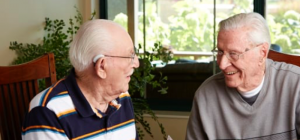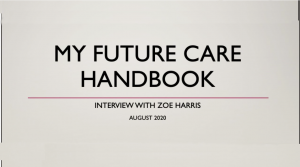
Photo by Nick Fewings on Unsplash
Part Two: Words aren’t everything
The Language of Dementia
Unfortunately, speech and language deterioration is almost inevitable for a person living with dementia. The reasons are multifarious — among others, the person’s natural language and vocabulary are increasingly challenged by reduced mental capacity. Reduced brain-processing power means that they may struggle to understand what is being said to them. Loss of short-term memory makes it harder for them to orientate themselves in a narrative, or in conversation. They may be unable to respond at we would consider to be a ‘normal’ speed. They might return to using another language learnt in their childhood.
But words aren’t everything
We can communicate better with a person living with dementia by using overt and subtle, non-verbal language that conveys meaning beyond the words — especially if it mirrors theirs. Mirroring non-verbal cues helps to give clarity to our engagement, making it easier for us to understand one another.
Over the years, I’ve heard a number of stories of people living with dementia who have become newly attached, or antagonistic to another person because the person reminds them of a family member or friend they once liked or someone they disliked. It is often something in the tone of the person’s voice that has created this attraction or repulsion.
And it is not just what we say, but how we say it — our tone of voice.
Tone of voice matters, because it helps us to express the feelings behind the words we use, and may reflect among other things, our social culture, where we come from, our age, social status, education and command of language, our sense of ourselves, our attitudes, our state of health and our current mood. The timbre of our voice may help or hinder our connection with someone, even if we may be hardly, if ever, conscious of it.
Over the years, I’ve heard a number of stories of people living with dementia who have become newly attached, or antagonistic to another person because the person reminds them of a family member or friend they once liked or someone they disliked. It is often something in the tone of the person’s voice that has created this attraction or repulsion.
What are the ingredients that make up tone of voice?
These include natural vocal musicality, pitch, depth and intensity, the clarity and sound of our words, the accentuation we use, the speed at which we speak and more generally, the personality and outlook we convey by these means.
Even the simplest of questions, such as “How are you today, John?” may be imbued with a range of meanings depending on the tone of voice used, from genuine authenticity to patronisation, from positivity or cheeriness, to sadness or negativity. How many underlying meanings are you able to convey, just by changing your tone of voice and accentuation in the sample question?
Being more aware of how we sound can help improve our relationships with everyone





No comment yet, add your voice below!